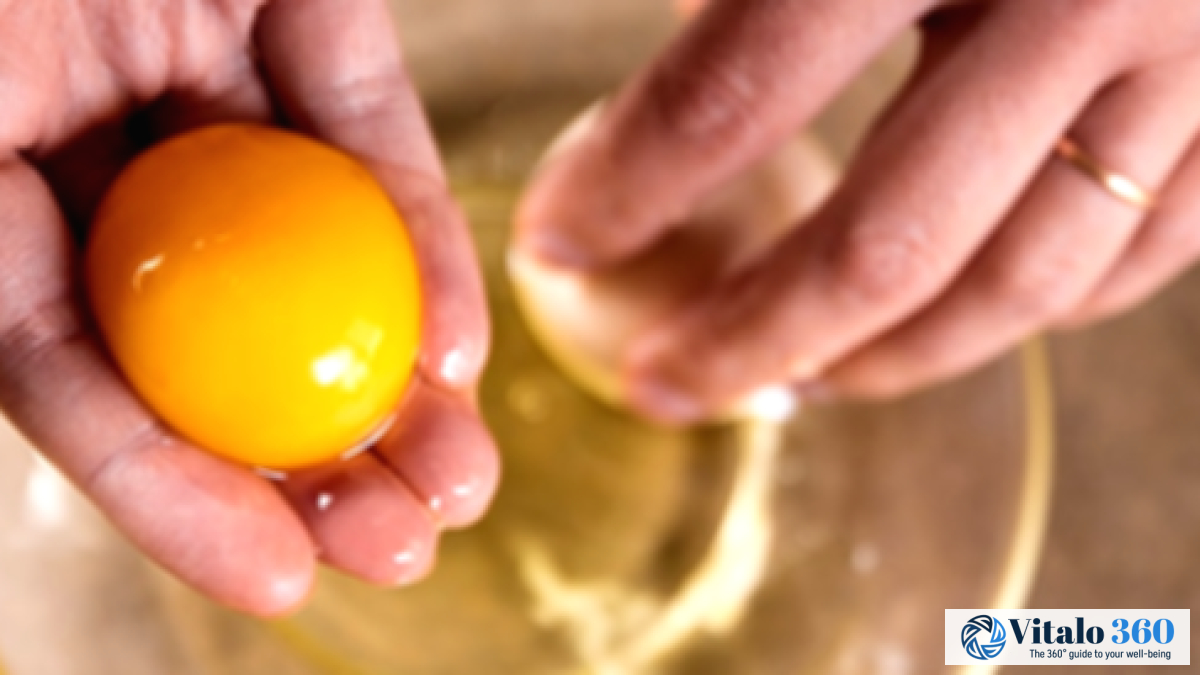Egg yolks offer valuable nutrients like vitamins and healthy fats that support eye, brain, and overall health; consider safe handling and cooking practices to minimize risks associated with cholesterol and salmonella.
Okay, eggs… we all know ’em, we all (probably) eat ’em. But have you stopped to think about what that golden yolk actually *does* for you? It’s not just there to look pretty, you know!
We’re gonna unpack the benefits and nutritional value of the humble egg yolk. It’s more than just cholesterol, protein, and a bunch of vitamins, promise!
- Benefits of Egg Yolk
- Nutritional Value of Egg Yolk
- Risks of Eating Egg Yolks
- Tips for Eating Egg Yolks Safely
Benefits of Egg Yolk
Eggs are one of the most readily available and affordable foods out there, so what makes the yolk so special? Let’s get into it:
- Boosts Immune Health: It’s packed with antioxidants and micronutrients to keep your body’s defenses up.
- Supports Eye Health: It can lower your risk of macular degeneration, a common eye condition.
- Maintains Bone Health: Thanks to its vitamin content, it aids in keeping your bones strong.
- Supports Skin Health: By guarding against damage to collagen.
- Energy Production: Egg yolks play a role in regulating energy production in your body, largely due to their protein and fat content.
- Cell Health: Helps maintain healthy cells by improving their function and structure.
- Cardiovascular Health: In addition to its other benefits, it aids in maintaining heart health.
- Fights Skin Damage: Thanks to its compounds, it helps in reducing skin damage that may come with age.
- Enhances Skin and Hair Health: Due to the abundance of vitamins.
- Boosts Brain Function and Memory: Helps reduce the risk of neurological disorders.
- Increases Muscle Mass in the Body: By facilitating muscle-building processes.
- Supports Brain Health: Egg yolk aids in the development of cognitive abilities.
- Reduces Risk of Infections: Thanks to its vitamin and nutrient content.
Nutritional Value of Egg Yolk
So, we’ve touched on the benefits, but let’s dive deeper into the yolk’s nutritional profile, shall we?
The nutritional content of an egg yolk depends, to a huge extent, on the hen itself: what it eats, how it’s raised, and how you prep and cook the yolk.
According to the USDA, one large egg yolk (about 17 grams) contains:
| Element | Amount / 17g Egg Yolk |
| Calories | 55 calories |
| Protein | 2.7g |
| Fat | 4.51g |
| Cholesterol | 184mg |
| Carbohydrates | 0.61g |
| Sugar | 0.10g |
Plus, eggs contain these minerals and vitamins:
Calcium, iron, magnesium, phosphorus, potassium, sodium, zinc, B vitamins, A vitamins, vitamin K, vitamin E, and vitamin D.
Now, beyond the basics, did you know that egg yolks also pack some pretty potent antioxidants and healthy fats? We’re talking about things like lutein and zeaxanthin, which are great for eye health, and choline, which is essential for brain function. It’s like a little power-up for your body!
Risks of Eating Egg Yolks
Okay, so we’ve been singing the praises of egg yolks, but let’s keep it real – there *are* some risks involved. While egg yolks offer numerous benefits, eating eggs comes with potential health risks related to salmonella.
Salmonella can lead to severe illness, especially in children, older adults, and those with compromised immune systems.
While the science isn’t concrete, consuming egg yolks can also increase cholesterol. Though this is only usually a concern for those with existing health conditions.
Tips for Eating Egg Yolks Safely
So, what steps can you take to minimize these risks?
- Buy eggs from reputable and trusted sources.
- Make sure the eggs aren’t cracked or dirty.
- Keep eggs at a safe refrigerator temperature of 4°C.
- Wash your hands and surfaces that come into contact with raw eggs.
- Cook eggs thoroughly.
- Avoid consuming eggs if they have an unusual odor or appearance.
- Avoid eggs that are runny or discolored.
But what if you’re looking for other ways to get those nutrients without the risks? We’ve noticed a lot of people are curious about alternatives that can provide similar benefits, without having to worry about the cholesterol or salmonella. Well, you could explore options like fish, which is rich in omega-3 fatty acids and vitamin D. Leafy greens offer lutein and zeaxanthin for eye health, just like egg yolks. And for that choline boost, consider adding more nuts and seeds to your diet. Just some food for thought—pun intended!
Key takeaways
- Egg yolks are a source of essential nutrients, and may improve many facets of your health.
- While most people can safely eat and benefit from egg yolks, eating eggs come with potential risks associated with salmonella and high cholesterol.
- Following some basic safe consumption guidelines will help you avoid these risks.
FAQ, Myth & Facts
Are brown eggs healthier than white eggs?
Nope! The color of the eggshell doesn’t really impact the nutritional value. It’s all about the hen’s breed.
Do egg yolks really raise your cholesterol?
For *most* people, dietary cholesterol has less of an impact on blood cholesterol levels than saturated and trans fats. But if you have high cholesterol, it’s still a good idea to chat with your doctor.
Is it safe to eat raw eggs?
I wouldn’t risk it. Raw eggs *can* carry salmonella, so cooking them thoroughly is the way to go. Better safe than sorry, right?
Is organic better than conventional eggs?
Organic eggs often come from hens that are raised in better conditions, but nutritionally, the difference might not be huge. Look into what matters to you most when picking out eggs. Maybe you’re prioritizing animal welfare, or maybe you’re more concerned about the nutritional content.
Myth: Egg Yolks are pure fat.
The egg yolks contain more calories and fat compared to egg whites; however, yolks also contain several difficult-to-find healthy nutrients.
I used to toss the yolks thinking I was being healthy. Now, I eat the whole egg and feel great about it. My doctor says my cholesterol levels are perfect!
I was worried about salmonella, but buying pasteurized eggs has eased my concerns. I love making custards and sauces with them.
My hair and skin have never looked better since I started incorporating more eggs into my diet. I had no idea they were such a beauty food!
Well, that’s the yolk unpacked! We’ve gone over all the good stuff and some of the not-so-good, plus, how to make sure you’re getting the most out of your eggs, safely. Personally, I’m starting to enjoy omelets even more knowing I’m doing my body some good by eating the whole thing.










